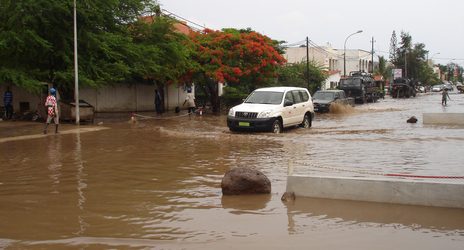A UNICEF media statement emailed to APA on Sunday says it is estimated that three million people, more than half of whom are children, urgently need humanitarian aid in Mozambique, Malawi and Zimbabwe after the cyclone, the worst disaster to hit sub-Saharan Africa in at
least two decades.
UNICEF Executive Director Henrietta Fore, who has just visited the beleaguered town of Beira , believes that “the lives of millions of children and families are at risk and we urgently need a quick and effective humanitarian response in all the three countries “.
“The massive scale of Cyclone Idai devastation is becoming clearer each day with more than 1.5 million children in dire need of assistance in Mozambique, Malawi and Zimbabwe,” he said.
According to the document, the situation on the ground is expected to worsen as more areas affected by the cyclone become accessible bearing in mind that there is also very little time to prevent the spread of opportunistic diseases.
Current conditions, stagnant water, poor hygiene, decaying bodies and overcrowding in temporary accommodation centers can easily lead to outbreaks of diarrhea, malaria and cholera to which children are especially vulnerable.
UNICEF is also deeply concerned about the safety and well-being of women and children who are crammed into temporary shelters and at risk of violence and abuse, as well as children who have been orphaned or separated from their families because of the storm
In Mozambique, the country most affected, 1,850,000 people, of whom one million are children, are in dire need of assistance.
“In Beira, there is critical infrastructure damage and heavy flooding in urban areas, since water has nowhere to drain. Floodwaters damaged crops shortly before the harvest season, with up to 50 percent of Mozambique’s annual crops destroyed, “the source said.
In Malawi, the weather affected more than 869,000 people, including 443,000 children, and caused more than 85,000 displaced persons; in Zimbabwe, more than 270,000 people have been affected, half of whom are children.
UNICEF is thus strengthening its response to affected children and families in each of the three countries, working to expand access to health, water, sanitation and hygiene and education services.
The children’s agency and its partners are also focusing on preventing a possible increase in malnutrition, identifying children who may have been orphaned or separated from their families and bring the children back to school.
On March 15, Cyclone Idai brought intense, flooding rain and an estimated 13 feet of deadly storm surge to some coastal areas in Mozambique. As a result of all that water; an “inland ocean” formed near Beira was a huge amount of water, measuring around 80 miles long by 15 miles wide.


